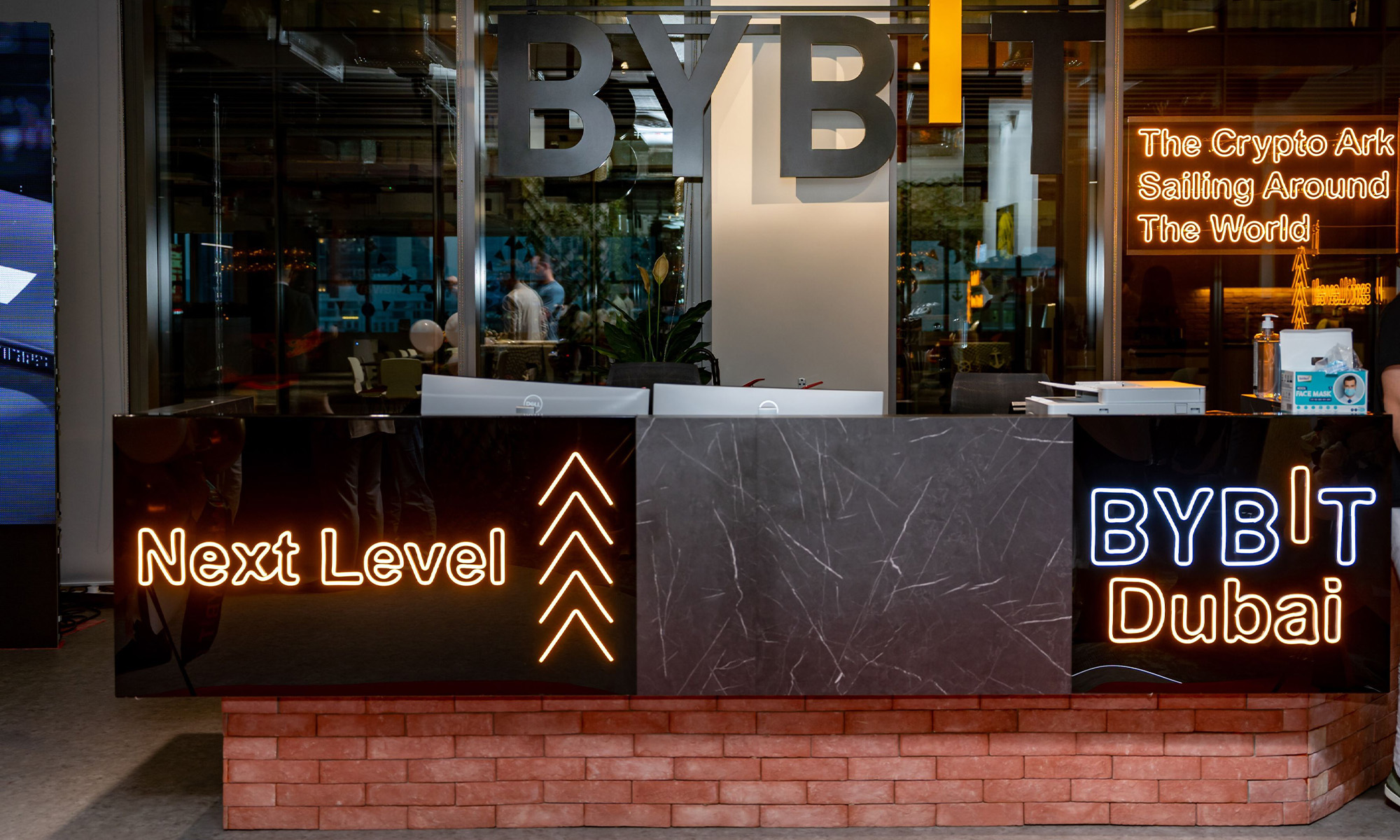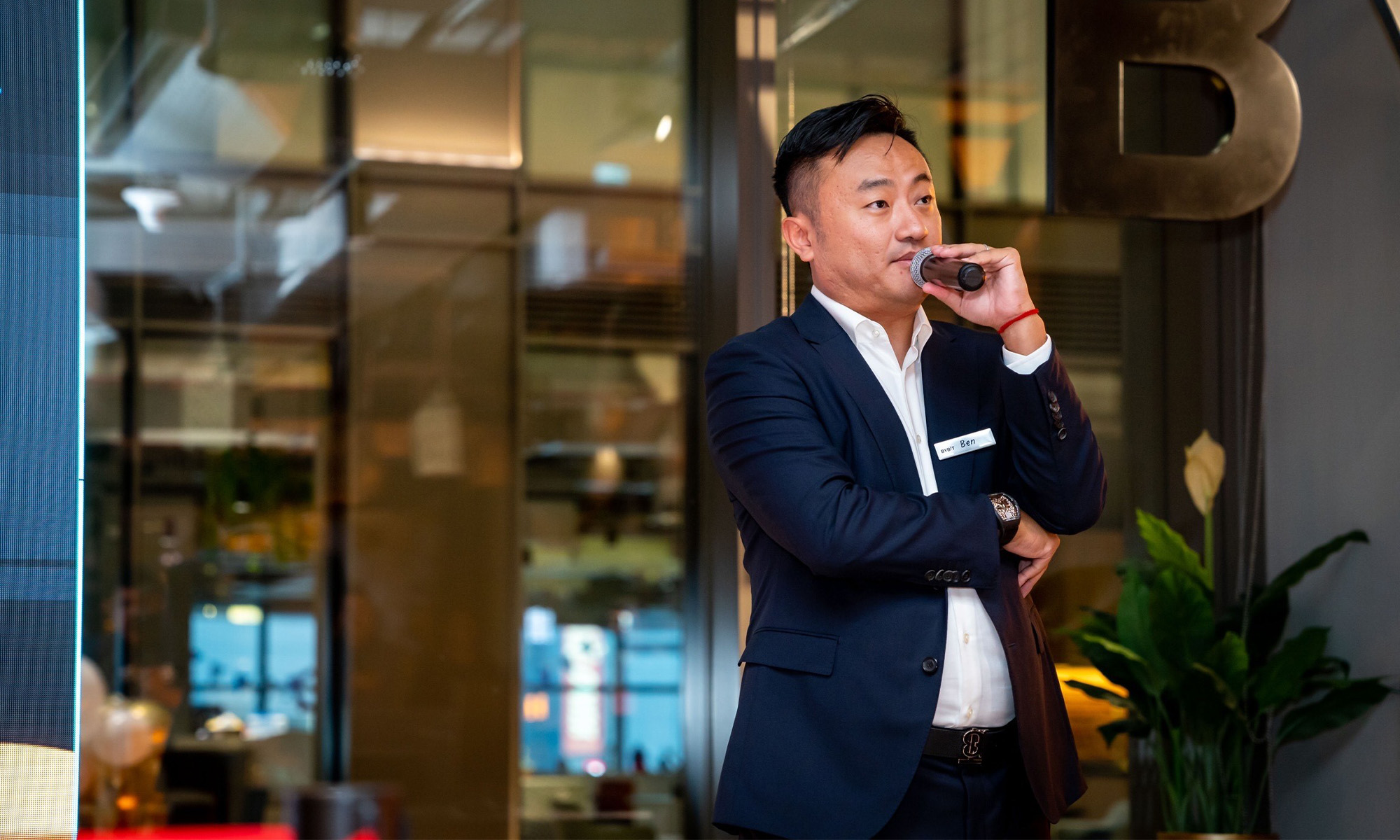News
Bybit Opens Global Headquarters In Dubai’s World Trade Center
The cryptocurrency exchange has massive plans for regional and world domination after doubling trading volumes in the MENA region and increasing its user base to 15 million.

Established in 2018, Bybit is an ultra-fast, professional cryptocurrency exchange with 15 million users worldwide. Today, the company has announced the opening of a new global headquarters in Dubai. The MENA region’s second-largest crypto exchange also revealed plans to further strengthen its position in the Middle East.
Bybit’s 16,000-square-foot office occupies an entire floor at One Central, Dubai World Trade Center, overlooking the world-famous Burj Khalifa and the Museum of the Future.
The crypto company was one of the first exchange services to be approved to operate in Dubai and is on track to double trading volumes in the region.
Bybit has lofty ambitions for world domination. The company aims to facilitate mass adoption of digital assets and will use its new Dubai base to host professional meet-ups and live streaming events, as well as offering members of the Bybit network access to exclusive spaces and support.
Also Read: LimeWire Launches Nostalgic Browser Game With Crypto Rewards
Bybit also plans to host workshops at the new headquarters to gather user feedback, showcase its product design and commercialization processes, and share news and insights on the latest market trends.

“The digital economy is advancing at incredible speed, and crypto and blockchain technology will be the mainstay and the connective tissues. As one of the most progressive digital assets hubs in MENA and the world, Dubai is optimally positioned to capture the opportunities in the sector by bringing together state-of-the-art tech and infrastructure, international talent, and vision,” says Ben Zhou, CEO and co-founder of Bybit.
Zhou also noted that the new office space was designed to emphasize Bybit’s commitment to openness and creativity: “We are excited to be part of Dubai’s futuristic skyline. The new office will be an innovative hub for dreamers and creators to exchange ideas and unlock next-level opportunities of Web3”.
News
Mamo Completes $3.4M Funding Round To Enhance Fintech Services
The startup will use the influx of cash to expand into Saudi Arabia and across the wider GCC while improving its product offering.

UAE-based fintech Mamo has announced the completion of a $3.4 million funding round that will help the startup extend its market presence and improve its product offering. Investors included 4DX Ventures, the Dubai Future District Fund and Cyfr Capital.
Mamo’s platform offers “payment collection, corporate cards and expense management” to help small and medium-sized businesses consolidate and streamline their operations. With the latest influx of capital, Mamo will further develop its comprehensive suite of services and begin testing its product lines in Saudi Arabia, further extending its footprint across the GCC.
Imad Gharazeddine, co-founder and CEO of Mamo, stated: “We’ve been in the market for a while now and are incredibly proud of what our team has achieved. The holistic and expansive nature of our product offering has helped us continue to grow sustainably. This additional funding will allow us to reach our medium-term goals even faster. The support from new and existing investors is a testament to our strong expertise and the ability to deliver on our customer promise”.
Daniel Marlo, General Partner of lead investor 4DX Ventures, added: “We have immense trust in Imad’s vision, leadership and Mamo’s innovative approach to provide a user-friendly and comprehensive financial solution for SMEs that makes financial management more accessible and efficient. We are proud to partner with them and support their mission”.
Also Read: A Guide To Digital Payment Methods In The Middle East
Amer Fatayer, Managing Director of Dubai Future District Fund’s investment team, also commented: “Mamo’s localized product lines serve as an infrastructure for SME payments and spend management in UAE, a segment that is underserved by the country’s current banking infrastructure. The team has taken a product-first approach to consolidating SMEs’ financial journeys and building a fintech solution deeply embedded in a business’s core operations”.
To date, Mamo has raised around $13 million in investment funding and now boasts a team of 30 people. The company’s intuitive financial services platform has allowed over 1,000 businesses to consolidate their financial operations and significantly reduce payment fees.
-

 News4 weeks ago
News4 weeks agoAmazon Prime Day 2024: Get Ready For 6 Days Of Amazing Deals
-

 News4 weeks ago
News4 weeks agoSamsung Unpacked 2024: What To Expect From The July 10 Event
-

 News4 weeks ago
News4 weeks agoCoursera Report Shows Surge In UAE Interest In AI Upskilling
-

 News4 weeks ago
News4 weeks agoMeet Dubai’s Groundbreaking Smart Robot Delivery Assistant














